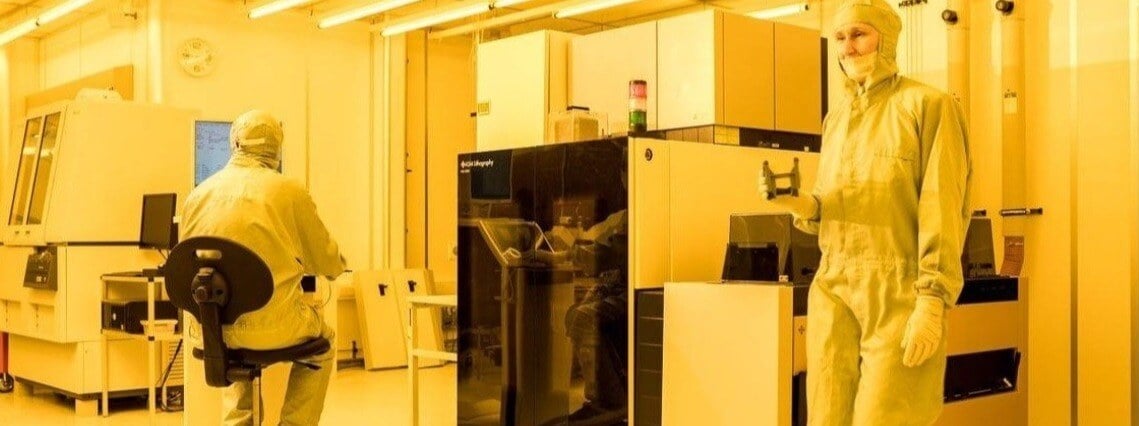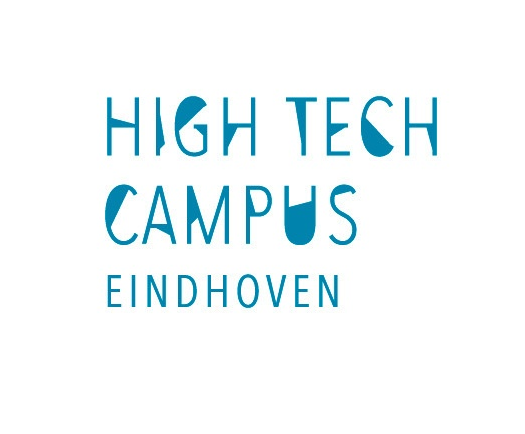


Editor's note: This article was originally published on the BOM website. You can see the original article here.

Photonics has enormous potential worldwide to contribute to the solution of various societal challenges. For example, dealing with energy more intelligently. The Eindhoven scale-up SMART Photonics plays a leading role in the development and integration of this promising key technology. That is why BOM has been involved with this company since the start-up phase.
Photonic chips work with light particles instead of electricity, making them many times faster and more economical than today's (electronic) chips. SMART Photonics is an independent producer and supplier of photonic integrated circuits (PIC): microchips with two or more integrated photonic components, which together form a circuit.
Photonic components have been around for a long time. For example, fiber optic communication uses lasers as a light source. SMART Photonics combines multiple functionalities in one chip (PICs), that is new. Data communication companies such as Google and CISCO are keeping a close eye on developments. A possible application of this type of photonic chips is namely the (drastic) reduction of the energy consumption of data centers. Data transport can become up to a thousand times more energy-efficient and faster with photonics. Essential, because new technologies such as IoT, AI and virtual reality generate an immense amount of data. In addition, photonic chips produce less heat, which means less cooling is required and therefore less energy.
Photonics also offers opportunities in mobility, among other things. Light Detection And Ranging (LIDAR) is a kind of 'radar on light': a technology that determines the distance to an object or surface by using laser pulses. It can give autonomous driving a huge boost in the future. Photonics also has potential in 'sensor land'. Photonic sensors in dikes can, for example, measure whether a dike shifts due to the impact of water. Or analyze blood, other fluids or cells in a medical setting. Sensors are now often in large devices. That works, but with integrated photonics it can be much smaller, lighter, more practical and potentially cheaper. More performance can be achieved with less energy.
At the Eindhoven University of Technology (TU/e), fundamental research and experiments with photonics have been conducted for over thirty years. SMART Photonics was founded to put that fundamental research into practice and to set up an infrastructure for the production of photonic chips. The startup had revenue and support from various investors from day one. Very comfortable for the company itself, but it also meant that the urgency of necessary changes was not always felt.
Responsible scaling
Ilse Massart, Investment Manager: “SMART Photonics approached BOM at an early stage. Initially for an investment. We wanted to help the start-up management team, but still had a number of points of attention. SMART Photonics already dreamed of building a large-scale factory, while their production line was not yet mature. In our view, the company scaled too early. And there were also other issues that could be tightened up. Many discussions have been held over the years. A good business and investment strategy are important if you want to build a scalable company.”
Invest
Ultimately, the trajectory led to an investment in 2020. The financing includes a contribution from the Dutch Ministry of Economic Affairs and Climate via the Brabant Development Agency (BOM), as well as participations from KPN Ventures, PhotonDelta and existing shareholders. SMART Photonics raised a total of €35 million to develop and realize a solid production line, thereby significantly increasing production capacity and further developing the promising technology.
The step to the market
In early 2022, SMART Photonics will officially put its first full production line into operation, a milestone for the chipmaker that will then celebrate its tenth anniversary. The line consists of more than fifty machines, which together are responsible for the three to four hundred steps in the production process of a photonic chip.
Keep growing
In 2023, SMART Photonics is on the eve of a new growth phase. In July 2023, the company will raise another round of financing from various strategic players in the industry and private and public investment funds. The Dutch government and chip giants ASML, NXP Semiconductors and VDL Groep, among others, jointly contributed 100 million euros. BOM also participated in this round. With this amount, the Eindhoven chip factory company wants to take further steps. The goal: to become a leading player in the global photonics market.
The TU/e spin-off developed from a laboratory to a so-called pure play foundry with high volume production potential, where customers can go to make their technology marketable. SMART Photonics itself does not have an 'end product', but develops and produces chips for the products of other parties.
In order to accelerate the development of this key technology, BOM has been supporting innovative companies such as SMART Photonics for years in the areas of development, investment and internationalisation. In addition, we contribute to an ecosystem in which new business can thrive better through innovation projects. We do this together with PhotonDelta , a platform that aims to ensure that Dutch pioneers convert their technological lead in integrated photonics into business, so that they can truly develop into global players. This should lead to an ecosystem of more than 25 companies by 2026 – of which SMART Photonics is one – that together account for € 1 billion in turnover and four thousand jobs.
Watch the video here (click on the image to go to YouTube):
Johan Feenstra, CEO of SMART Photonics: “The technology is increasingly becoming an option for young companies that want to contribute to a better world with their innovations.”
The role of BOM is – as is the case with a successful development – becoming smaller. Ilse: “SMART Photonics is large, visible and active in a market that is important for Brabant and the Netherlands: photonics is a key technology. This (now) scale-up is the only one in the Netherlands, and one of the few worldwide, that can make this type of photonic chips. That makes its role in the ecosystem large and that also makes it very important to us as BOM. We were very closely involved for a while. Now we are a shareholder, like many others. Which does not mean that we do not continue to challenge.”
In the Netherlands, the entire photonics value chain is present, and all links are maturing. As a result, employment in this sector will grow by hundreds of jobs in Brabant in the coming years. Both at SMART Photonics itself, and at suppliers and partners in the ecosystem.
SMART Photonics is currently the only company in Europe that can actually produce complex photonic InP chips. This makes the startup not only extremely valuable for the Brainport region, where SMART Photonics has its office, and Brabant, but also for the rest of the Netherlands. The many possible applications of photonics make broad impact possible in various sectors. Solutions that used to be labelled as 'exotic' are becoming increasingly accessible.
